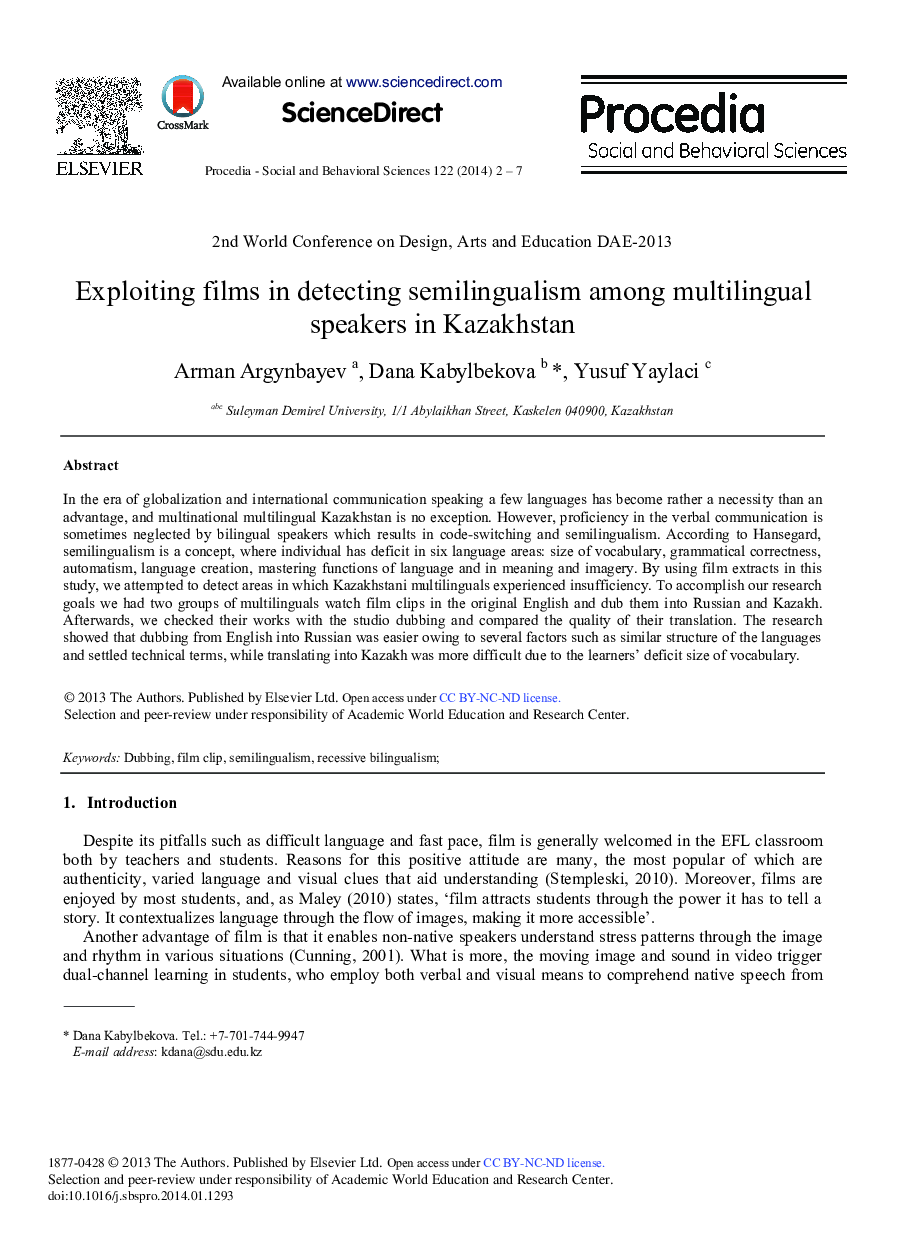| Article ID | Journal | Published Year | Pages | File Type |
|---|---|---|---|---|
| 1114851 | Procedia - Social and Behavioral Sciences | 2014 | 6 Pages |
In the era of globalization and international communication speaking a few languages has become rather a necessity than an advantage, and multinational multilingual Kazakhstan is no exception. However, proficiency in the verbal communication is sometimes neglected by bilingual speakers which results in code-switching and semilingualism. According to Hansegard, semilingualism is a concept, where individual has deficit in six language areas: size of vocabulary, grammatical correctness, automatism, language creation, mastering functions of language and in meaning and imagery. By using film extracts in this study, we attempted to detect areas in which Kazakhstani multilinguals experienced insufficiency. To accomplish our research goals we had two groups of multilinguals watch film clips in the original English and dub them into Russian and Kazakh. Afterwards, we checked their works with the studio dubbing and compared the quality of their translation. The research showed that dubbing from English into Russian was easier owing to several factors such as similar structure of the languages and settled technical terms, while translating into Kazakh was more difficult due to the learners’ deficit size of vocabulary.
